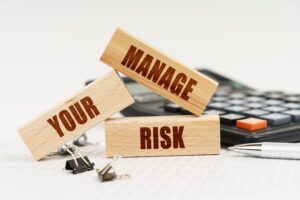The Pyramid: Ordering Your Investment Objectives

The Pyramid: Ordering Your Investment Objectives
Investment planning is not like trying to win the lottery — it’s not a matter of luck.
Crafting an investment strategy requires an assessment of resources, development of objectives, analysis of choices and opportunities, and, finally, matching of those alternatives to long-term goals.
1. Safety and security of the principal
The most basic investment objective is the safety and security of the principal. When this is the paramount concern, the investor is less concerned with return on investment than with the return of investment. Investments that offer the least investment risk pyramid also carry the lowest expected investment return.
The next objective is income. In an investment portfolio, income comes from interest and dividend payments. Investments that offer relatively more current income generally have less potential for growth in value.
Growth is the objective that appeals most to investors who are accumulating capital for a future need, such as education or retirement funding. With higher growth potential come higher risks and a greater chance of incurring an investment loss.
2. Arranged in a Pyramid
These objectives of investment may be arranged in a pyramid. The safest investments are at the base of the pyramid, and as one climbs up, the choices have greater potential reward, and also greater risks. At the top of the pyramid is speculation, which involves more exotic investments designed in part to outguess the financial markets.
Each element of the pyramid of objectives has a corresponding investment choice. The safest investments are cash equivalents, such as money market funds and short-term government debt. As fthe markets move up and down, the interest earned by such investments will vary, but the underlying value of the principal will be stable.
Government and corporate bonds pay more income, but also involve two risks. One is the risk of default, that is, the chance that the interest or principal will not be paid because of the bankruptcy of the borrower. The other concern with bonds is an interest-rate risk. When interest rates rise, the value of bonds falls, and longer-term bonds fall more sharply than intermediate-term bonds do. If the bond is held to maturity, this paper loss is of no concern, but if the investment must be liquidated prematurely, the paper loss can become quite real. Conversely, of course, if interest rates fall, the value of the bonds will rise, which can lead to handsome gains.
Common stocks have been the most reliable investment choice for those seeking significant capital growth over the long term. This large investment category can be sliced and diced in a variety of ways: growth stocks vs. value stocks, large companies vs. small companies, cyclical stocks vs. noncyclical stocks.
At the top of this pyramid come investments in stock options, venture capital and precious metals. These are choices better left to the most sophisticated investors, who can afford heavy short-term losses as they pursue their investment strategies.
Building your portfolio
The precise balance among stocks, bonds, and cash that will be appropriate for you depends upon your investment strategies. Ask yourself these questions:
• How soon will you need to draw upon your investments? The longer your time horizon, the more weight you should give to stocks. With time on your side, you can afford to ride out the occasional downdrafts. On the other hand, if you expect to begin drawing on your investments in the intermediate term, you should consider shifting your emphasis to income and safety of principal investment objectives.
• How concerned are you about inflation? The greater your concern, the more you should invest in stocks.
• How important is it that your investments not drop significantly in value? If wide price variations are likely to keep you up at night, you should be emphasizing bonds and income-oriented investments.
• Are your investments a source of emergency funds? A cash reserve is a good idea for emergencies, so you don’t have to liquidate investments during adverse market conditions. It’s important not to take your investment planning for granted. Once you’ve decided on a strategy, give it an annual checkup, to be certain that you’re staying on course.
Subscribe our YouTube Channel for more updates.
GROCO Receives Recognition From Fremont Education Foundation
GROCO Receives Recognition From Fremont Education Foundation Fremont, CA – February 23, 2006 – Greenstein Rogoff Olsen & Co. (GROCO), Top Bay Area CPA Firm, is pleased to announce they were recognized by the Fremont Education Foundation as a Foundation Sponsor for 2006. At the Fremont Board of Education meeting on Wednesday, February 22, 2006 Fremont…
A Thorny Dilemma: The Ethics of Mortgage Walkaways
A Thorny Dilemma: The Ethics of Mortgage Walkaways By Steve Merrel, Partner Willow Ridge Capital Advisors In the aftermath of the housing bubble and the lending frenzy that fueled it, more and more families find themselves stuck owing a lot more on their mortgages than their homes are worth. Pressed with rising mortgage rates and…
Qualities of Effective Team Leaders
Qualities of Effective Team Leaders What does it take to develop effective team leadership skills? It can be a difficult task to accomplish, but as you strive to take the following steps, you can be a more effective team leader. Your Perception Empowering others begins with the way you see them. You can either assume…
IRS Delays User Fee Charges for Form 8802
IRS Delays User Fee Charges for Form 8802 October 10, 2006 Notice 2006-90 announces that the new user fee will be charged for all Forms 8802, Application for United States Residency Certification, received with a postmark date on or after November 1, 2006. Form 8802 is used to request Form 6166, a letter that the…



